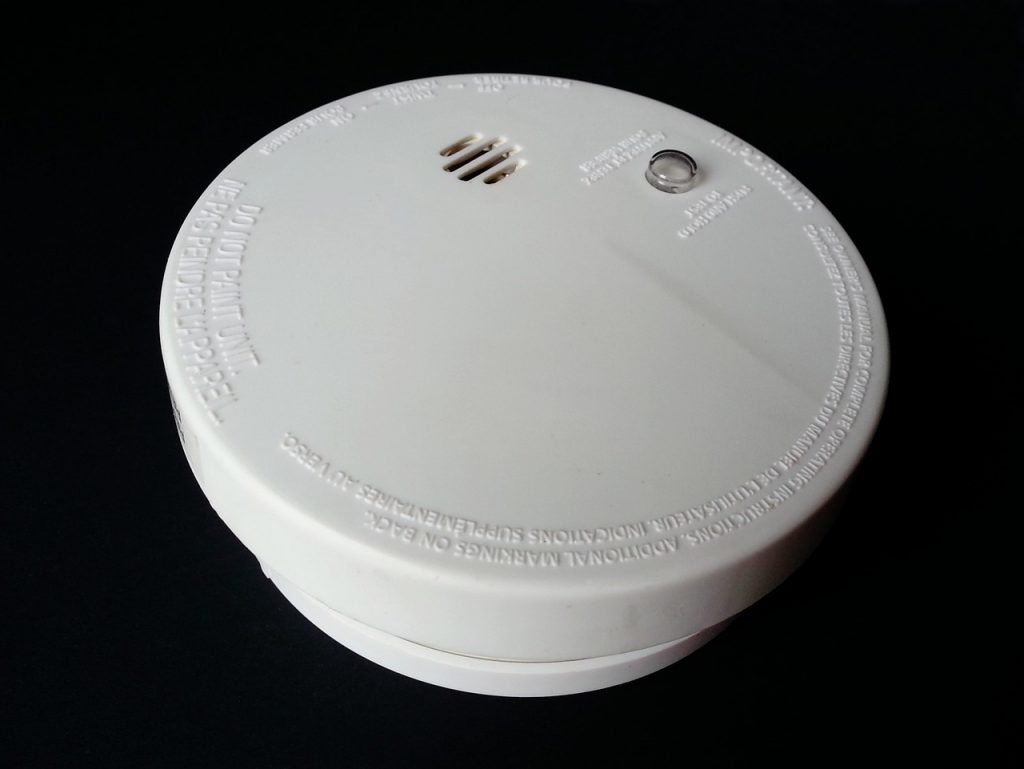Starting October 1st, it will be mandatory for both privately owned and publicly run rental properties to have a minimum of one smoke alarm on each floor that has a room that is being utilized as living space. Since the initial rules were implemented in 2015, this statutory prerequisite for privately managed rental houses has been in place, but it will soon be extended to social housing as well.
A carbon monoxide alarm is required to be installed in each room that is utilized as living space and that also has a combustion device that is permanently installed. Any device that generates heat by burning fuel is included in this category; however, gas cookers are not.

Once a tenant brings it to the landlord’s attention, the landlord will be liable for fixing or replacing any smoke or carbon monoxide alarms in the rented property. This may be the most significant change for landlords. Before the rules were changed, landlords were the ones who were responsible for installing and testing the alarm at the beginning of the leasing; however, the liability for repairing or replacing the alarm throughout the tenancy fell to the tenant by default.
By the laws about smoke and carbon monoxide alarms, what kind of alarm must be installed?
In the regulations about smoke alarms and carbon monoxide alarms, there is no need for a particular kind of alarm to be installed.
It is up to the landlord to decide, taking into account the requirements of both their tenants and their building. Either battery-operated or mains-powered (hard-wired) smoke alarms are entirely acceptable so long as they meet the requirements of the British Standards BS 5839-6 (smoke alarms) and BS 50291 (fire alarms) (carbon monoxide alarms).

In situations where battery-powered alarms are desired, it is preferable to go with alarms that use batteries that are “sealed for life” rather than alarms that use batteries that can be replaced. It is important to note that heat detectors should not be used instead of smoke alarms.
When selecting the most appropriate security system for their tenants, landlords should take into account the specifics of each tenant’s situation. For persons who are deaf or hard of hearing, for instance, alarms that notify by vibration or flashing lights (rather than sound) might be preferable.
Where are the best places to put smoke and CO alarms?
On each floor that contains residential quarters, there should be a minimum of one smoke alarm installed. The laws do not specify where precisely they should be fitted or positioned, but in most cases, they are fastened to the ceiling in a circulation area, such as a hall or a landing. This is the case even if the location of their installation is not specified.
The only need for carbon monoxide alarms is that they are put in every room that is utilized as living accommodation and has a fixed combustion device. Other than that, there are no specific requirements for the alarms (excluding gas cookers).
Alarms for carbon monoxide should be installed at a height that is comfortable for the user, either on a shelf or mounted on the wall, and between one and three meters away from any possible source of the gas. Both smoke alarms and carbon monoxide alarms should have their own manufacturers’ guidelines adhered to at all times.
What exactly is meant by the term “fixed combustion appliance”?
Alarms for carbon monoxide must be fitted in each room that has permanent combustion equipment, except kitchens with gas stoves. This refers to a structure that is permanently installed to create heat, and it burns fuel of any kind.

Boilers that run on gas or oil and stoves that burn logs, coal, wood, or other fuels are examples of the types of devices that fall into this category. An ornamental fireplace that does not work cannot be counted as permanent combustion equipment.
Which tenancies are within reach of the regulations?
The restrictions apply to tenancies for all properties that are leased in England, regardless of whether the landlords are private landlords or registered providers of social housing. The following leases are not eligible for this offer:
- room in a house that was shared with the landlord or the landlord’s family
- lengthy leases
- residential halls for college students
- hotels and refuges
- nursing homes
- include hospices and hospitals.
- houses that may be owned at a modest price
- additional accommodations in connection with the delivery of health care
These laws will not be enforced if the occupant shares the accommodation with the private landlord or any members of the private landlord’s family. The rules do not apply to people who live in their own houses or in residences that are part of a shared ownership arrangement if they are owner-occupiers.
What are the duties of landlords regarding smoke and carbon monoxide alarms?
It is the responsibility of the landlord to check that the appropriate alarms have been placed and are operational. The landlord is responsible for testing the alarm on the first day of the rental and repairing or replacing any malfunctioning alarms that are reported by the tenant throughout the term of the lease.
Although it is the responsibility of the tenant to notify the landlord of any problems with the smoke or carbon monoxide alarms, landlords would be advised to check the alarms during mid-term inspections or other periodic visits. Tenants are responsible for changing the batteries in alarm systems that are powered by batteries. Tenants are obligated to notify their landlords if the alarm continues to be inoperable or if they are unable to change the batteries in the device.
How are the alarm regulations enforced?
Housing authorities in each municipality will be responsible for enforcing the restrictions. If it comes to the attention of landlords that they do not comply with the regulations, they have a responsibility to install or repair the alarms as quickly as possible.
When landlords are found to violate the requirements, the local housing authority has the option of serving them with a corrective notice. If you do not comply with each remedial notice, you might be subject to a punishment of up to £5,000 per infraction as opposed to a charge levied on the landlord or the property.
How can landlords demonstrate that they comply?
Landlords need to maintain a record of the dates on which alarms are placed, tested, and repaired. The local housing authority will, if questioned, evaluate whether the evidence indicates that the landlord complied with the standards based on whether or not the landlord was questioned.
On the first day of the tenancy, it is a good idea to carry out an inventory so that a record can be kept of the condition of the rental property. The landlord or the inventory clerk may make a notation indicating the alarms have been tested and are operational, and the renter can sign the inventory to validate that the information is accurate.
If you’re looking to sell or let your home with a Lee On The Solent Estate Agent, Stubbington Estate Agent, Gosport Estate Agent, Fareham Estate Agent, Portsmouth Estate Agent then please do not hesitate to email info@gshomes.co.uk or call on 023 93 960 169.




0 Comments